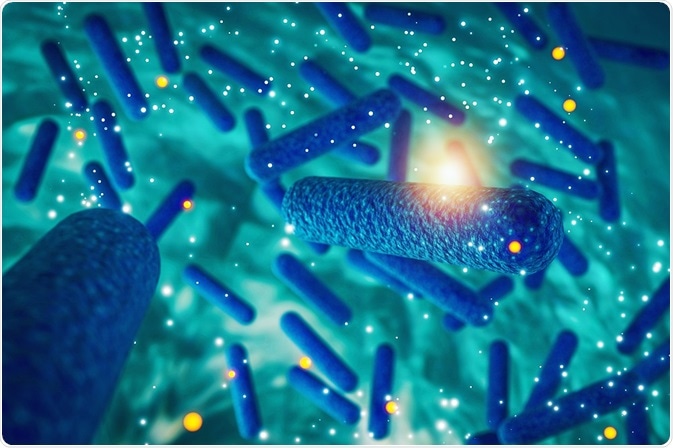Gut microflora are a major component of the human microbiome and have been the subject of research for many years, but no more so than the past year.
 Credit: CI Photos/Shutterstock.com
Credit: CI Photos/Shutterstock.com
Public engagement in research surrounding the microbiome has been unprecedented, and is thought to be due to a a growing interest in diet and health, and how the bacteria in the human gut can affect disease outcomes.
Antibiotics can deplete microbial diversity
The human microbiome can be affected by a plethora of external and internal stimuli – from a change in diet, to contracting a disease. A common cause of microbiome depletion is the use of broad-spectrum antibiotics, such as penicillins. Chemotherapy (or more specifically, plant alkaloids) also have antibacterial qualities which can lead to a reduction in microbiome diversity.
When a person undergoes a course of antibiotics or chemotherapy, not only are the pathogenic organisms destroyed/disabled, so are a lot of the normal, healthy microflora. This can affect a variety of bodily systems, such as the digestive system and the immune system.
The effects that antibiotics have on the microbiome depend on:
- The chemical nature of the antibiotic,
- Duration of the course of antibiotics,
- Number of antibiotics being used,
- Dosage (more potent antibiotics affect the microbiome more strongly)
Re-establishing the microbiome
For patients who undergo repeated rounds of chemotherapy or courses of antibiotics, doctors may choose to evaluate the composition of their microbiome, and decide whether or not a treatment is required to re-establish a healthy microbial community.
One method is the use of probiotic supplements. However, the use of such treatments is controversial, with many studies unable to prove that they improve the health of the gut.
Another option is a fecal transplant. This involves the transfer of healthy bacteria isolated from the stool of one patient to a patient whose microbiome is compromised. A major disease which is commonly treated by fecal transplant in the U.K. is Clostridium difficile. This is meant to provide a fight the infection.
However, like probiotics, fecal transplantation has causes some controversy in the past. There are questions about the efficacy of fecal transplants and whether they actually influence the patient’s recovery at all.
Furthermore, DIY fecal transplants are becoming increasingly popular. One can buy an at-home transplant ‘kit’ easily online, and access a collection of instructional videos on the internet. It has been clearly established that DIY fecal transplants are dangerous, as they can cause micro-lacerations in the colon, thus leading to inevitable infections.
A much simpler way of adjusting the gut microbiome is through changing your diet. This method is much slower, but is the healthiest and most reliable way tore-establish a healthy microbiome for the long-run – without incurring any dangers or invasive medical procedures.
Microbiome depletion through intensive antibiotic use can actually be prevented before any antibiotics are actually administered. One study involving patients suffering from Clostridium difficile infections found that the ingestion of β-lactamase prior to starting a course of antibiotics was able to reducethe impact of antibiotics containing a β-lactam ring on the bacterial cells of the gut – thus reducing the impact of the antibiotics on microbial diversity.
Last Updated: Feb 26, 2019